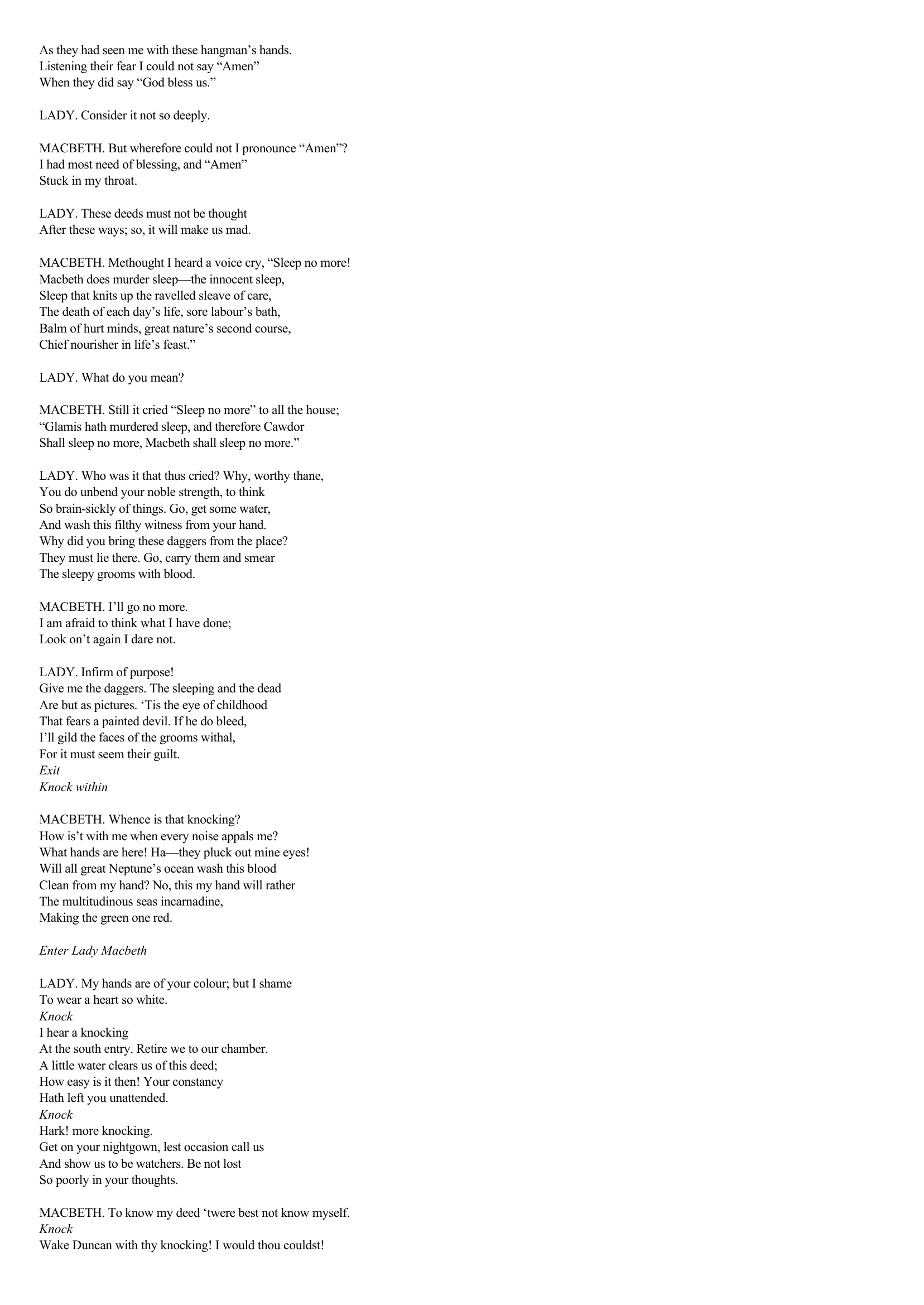Excerpt from Macbeth - anthology.
Publié le 12/05/2013

Extrait du document
«
As they had seen me with these hangman’s hands.Listening their fear I could not say “Amen”When they did say “God bless us.”
LADY.
Consider it not so deeply.
MACBETH.
But wherefore could not I pronounce “Amen”?I had most need of blessing, and “Amen”Stuck in my throat.
LADY.
These deeds must not be thoughtAfter these ways; so, it will make us mad.
MACBETH.
Methought I heard a voice cry, “Sleep no more!Macbeth does murder sleep—the innocent sleep,Sleep that knits up the ravelled sleave of care,The death of each day’s life, sore labour’s bath,Balm of hurt minds, great nature’s second course,Chief nourisher in life’s feast.”
LADY.
What do you mean?
MACBETH.
Still it cried “Sleep no more” to all the house;“Glamis hath murdered sleep, and therefore CawdorShall sleep no more, Macbeth shall sleep no more.”
LADY.
Who was it that thus cried? Why, worthy thane,You do unbend your noble strength, to thinkSo brain-sickly of things.
Go, get some water,And wash this filthy witness from your hand.Why did you bring these daggers from the place?They must lie there.
Go, carry them and smearThe sleepy grooms with blood.
MACBETH.
I’ll go no more.I am afraid to think what I have done;Look on’t again I dare not.
LADY.
Infirm of purpose!Give me the daggers.
The sleeping and the deadAre but as pictures.
‘Tis the eye of childhoodThat fears a painted devil.
If he do bleed,I’ll gild the faces of the grooms withal,For it must seem their guilt.ExitKnock within
MACBETH.
Whence is that knocking?How is’t with me when every noise appals me?What hands are here! Ha—they pluck out mine eyes!Will all great Neptune’s ocean wash this bloodClean from my hand? No, this my hand will ratherThe multitudinous seas incarnadine,Making the green one red.
Enter Lady Macbeth
LADY.
My hands are of your colour; but I shameTo wear a heart so white.KnockI hear a knockingAt the south entry.
Retire we to our chamber.A little water clears us of this deed;How easy is it then! Your constancyHath left you unattended.KnockHark! more knocking.Get on your nightgown, lest occasion call usAnd show us to be watchers.
Be not lostSo poorly in your thoughts.
MACBETH.
To know my deed ‘twere best not know myself.KnockWake Duncan with thy knocking! I would thou couldst!.
»
↓↓↓ APERÇU DU DOCUMENT ↓↓↓
Liens utiles
- Excerpt from Twelfth Night - anthology.
- Excerpt from Troilus and Cressida - anthology.
- Excerpt from Titus Andronicus - anthology.
- Excerpt from Timon of Athens - anthology.
- Excerpt from The Winter's Tale - anthology.


